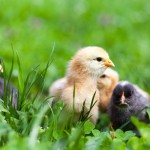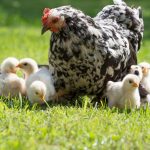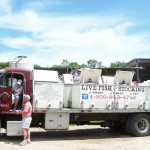Follow these Firework Pet Safety Tips for a safe and successful holiday celebration. Did you know that more pets go missing over the Fourth of July holiday than any other time of the year?
Cats
- Keep your cat indoors.
Close all windows and curtains and switch on music or the television to drown out the noise. - Leave your cat to take refuge in a corner if it wishes. Do not try to tempt it out as this could cause more stress.
- Make sure your cat is microchipped or is wearing identification tags to ensure it can be returned to you if it escapes and becomes lost.
Dogs
- Exercise your dog during the day.
- Never walk your dog while fireworks are being let off.
- Keep your dog indoors, close the curtains and play music to drown out the noise.
- Let your dog hide if it wants to take refuge under furniture or in a corner.
- Make sure your dog is wearing a collar and tag and is microchipped or is wearing identification tags in case it bolts and becomes lost.
- Keep dogs leashed if you take them outside the home.
- Use caution when in or around crowds or people your dog doesn’t know
- Remember, dogs get very excited during horseplay in and out of the water and have a tendency to bite when excited.
- Use caution when picnicking and barbecuing, many small children are bitten while walking around with food in their hands.
- Protect your dog from other dogs that may be loose, keep them at a distance, many bites occur while animal owners are trying to break up a dog fight.
- If it is hot, give your pet lots of water – indoors or out
- Never leave your dog locked in cars – the hot summer sun can raise temperatures to 120 degrees inside your car, even with windows rolled down.
- Prevent sunburns – keep four-legged friends out of the sun between 10 a.m. and 4 p.m., peak skin damaging hours. Otherwise rub sunblock on unprotected areas such as the skin around lips and tips of noses and ears, especially on fair-colored pets.
- Provide plenty of shelter – animals should not be left alone outside on hot days, even in the shade. Shade moves throughout the day so pets need to be kept under a cool shelter or inside during peak hours when possible.
- Watch out for heatstroke – symptoms of pet heatstroke include panting, staring, high fever, rapid heartbeat, vomiting, collapse, and disobedience, among others. If heat stroke is suspected, call a veterinarian immediately and apply water-soaked towels to hairless areas of the animal’s body to lower its temperature.
- If you go hiking, pack supplies for your dog as you would for yourself on long hikes – bring extra food and water for your dog on long walks as well as an emergency first aid kit.
- Keep your pets on their normal diet. Any change, even for one meal, can give your pet severe indigestion and diarrhea.
- Use caution with open flames and fireworks as pets may be burned or could chase the fireworks and become injured.
- A simple plug-in diffuser that dispenses a dog appeasing pheromone into the room is available at some veterinary practices.
- Sedatives can also be prescribed by your vet.
- Never leave alcoholic drinks unattended where pets can reach them.
- Do not put glow jewelry on your pets, or allow them to play with it.
Small animals
- Small animals – such as rabbits and guinea pigs – living outside should not be forgotten. They can also become very stressed from loud noise. Bring small animals indoors or into an outhouse or garden shed to give them extra protection
- Where the hutch must remain outside then cover it in an old thick blanket, this will block out a lot of the light and sound.
- Whether indoors or outdoors ensure your pets have plenty of extra bedding material to hide in and feel more secure.
Horses
- If the horses on the yard aren’t used to music, start playing the radio for them three days BEFORE firework night and leave the radio on to distract them on the night itself.
- If you have stable lights, leave them on and they’ll make the firework flashes less extreme.
- Don’t even think of riding out – yes, people do!
- If you leave them out, check fences and gates first and then keep out of the way and just watch from a distance.
- Try putting cotton wool balls in your horse’s ears but again practice in advance. It’s no good waiting until the bangs start to decide to give it a try.
- If you do stable your horse, arrange for him/her to be brought in before the end of the school day when bangs are likely to start. You don’t want to be leading when they get a fright.
- Make sure they have plenty of hay to keep them occupied.
- If you can keep calm during the bangs and flashes then hang around the stables or go regularly to check them – but if you’re likely to be scared/angry, etc yourself, be in the immediate area by all means but keep away from the horses or you’ll only make them worse.
- DON’T go in the stable with a horse once the fireworks start. I don’t care how calm they seem to be – it just takes an instant for them to change from your cuddly horse to a wild animal that has reverted to survival mode.
- Never light fireworks near barns or fields, as it is an extreme fire hazard. And, horses can be especially frightened by fireworks, causing them to run through fences and become lost or injured. They can also injure people when they are startled by the lights and noise.




